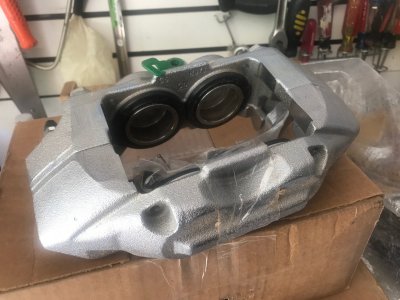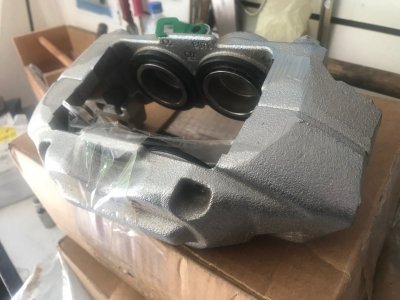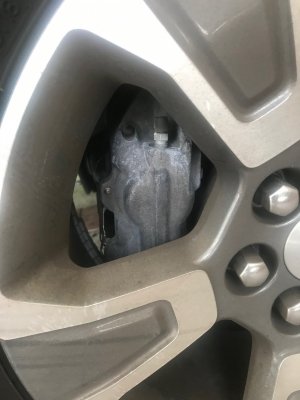Regarding the original conversion video, there are a couple of thoughts and issues that need to be addressed, as there's no sense going this route unless you dramatically improve your stopping power.
1) Adequate volume/force brake master cylinder
2) Correct F/R brake bias (after market valve)
3) Correct and thorough bleeding of the system
For reference, I had a '90 Corvette that I converted to a track car. I was an in car driving instructor, so my brakes HAD to be awesome and virtually impervious to heat. (although, you can ultimately over heat any braking system, if abused hard enough) Here's what worked for me...this is NOT a recommendation that you should do the same. I ran 6 piston Wilwood race calipers on the front and 4 pot WW rears. I had to change the brake master cylinder because when you push "that" much more brake fluid through the system, you will never generate enough force using the stock master. I had to identify the "right" master, which in my build happed to be a slightly modified Camaro master. Also, I had to install a brake bias valve to make the system effective. Because these vehicles have ABS, there's a trick to setting that. In my vintage, I simply pulled the ABS fuse and went to my usual "test" area, which happened to be an industrial park, at night. Bottom line is that you keep adding rear bias until the rears lock up first, then back off about a 1/2 turn, then reinstalled the fuse and verified all was good. If you go this route, your adjustment will likely be different.
While this next step is way out sequence, you will appreciate the fact that your system MUST be totally purged of all of the old fluid and air. I found that the best (and easiest) method was to use an air driven fluid extractor. (something like this
https://www.tooldiscounter.com/product/mityvac-88-litre-air-operated-fluid-evacuator-mit7300 This is NOT one of those mini hand held pumps.) It is a painless, and totally effective method of bleeding your brakes. You can actually do it without anyone assisting. I used some high temp/high dollar brake fluid for my application, (Motul) but any high quality brake fluid will work for the street. (Do NOT use silicone!!!)
Check your vehicle's shop manual to determine if/how you need to bleed your ABS system. Some GM vehicles required a Tech2. Also, because brake fluid is hygroscopic, (it attracts moisture) it's always a good idea to totally purge and replace ALL of your brake fluid regularly. I used to do it a couple of times a season with my track car and do it every couple of years on my street vehicles. Your frequency may vary.






